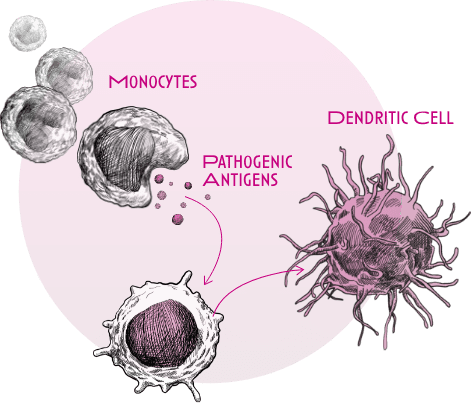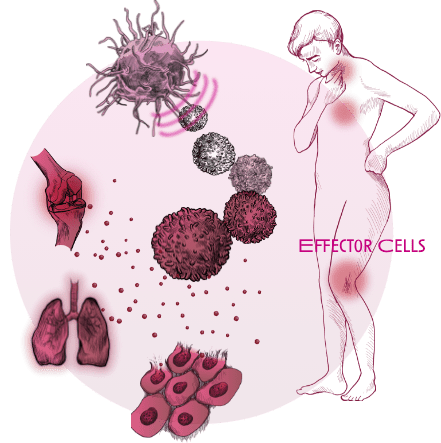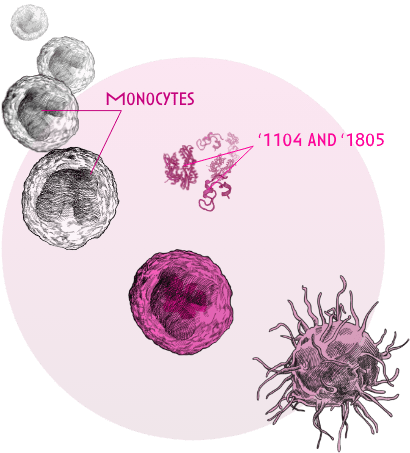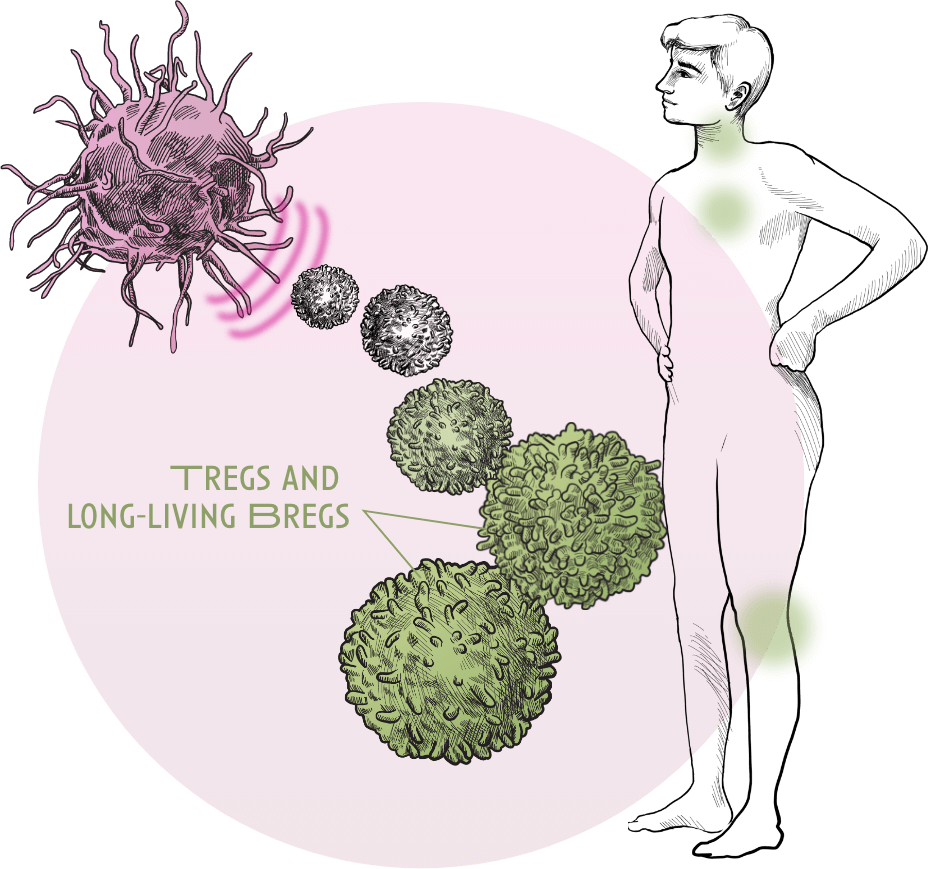Our Science
Pressing the Reset Button on the Immune System

Our Revolutionary Approach
People with autoimmune or allergic diseases often have overactive, dysfunctional immune systems characterized by elevated numbers of inflammatory immune cells, leading to tissue destruction.

In allergic disease, the immune system “overreacts” to certain molecules (allergic antigens) that are unknown to the body. In autoimmune diseases, the body recognizes its own tissues (self-antigens) as if they were foreign and attacks them. As part of that recognition, a type of immune cell known as a monocyte, interacts with and engulfs these antigens and then matures into specialized immune cells called dendritic cells.
Dendritic cells interact with other types of undifferentiated cells, called naïve T cells or B cells, delivering an activating signal for them to become inflammatory T effector cells that multiply and drive chronic inflammation and tissue destruction.


Revolo’s drug product candidates, ‘1104 and ‘1805, reset the immune system from a pro-inflammatory state to a regulated homeostatic state, by inducing T regulatory (Treg) and B regulatory (Breg) cells after just one dose.
‘1104 and ‘1805 bind to monocytes as they mature into dendritic cells, prompting delivery of a modified “regulatory” signal to naïve T cells, generating T regulatory cells (Tregs) instead of proinflammatory T effector cells.
Regulatory T cells are a subpopulation of T cells that prevent the immune system from entering overdrive. They modulate the immune system, maintain tolerance to self-antigens and prevent autoimmune and allergic disease. We now know that ‘1104 also generates B regulatory cells, another key regulatory immune cell that supports immunological tolerance. As such, ‘1104 and ‘1805 uniquely reset the immune system to its normal regulatory state and have the potential to lead to long-term disease remission for patients.
‘1104 and ‘1805 are antigen agnostic, meaning they work independently of the specific allergen or antigen to reset the immune system.
